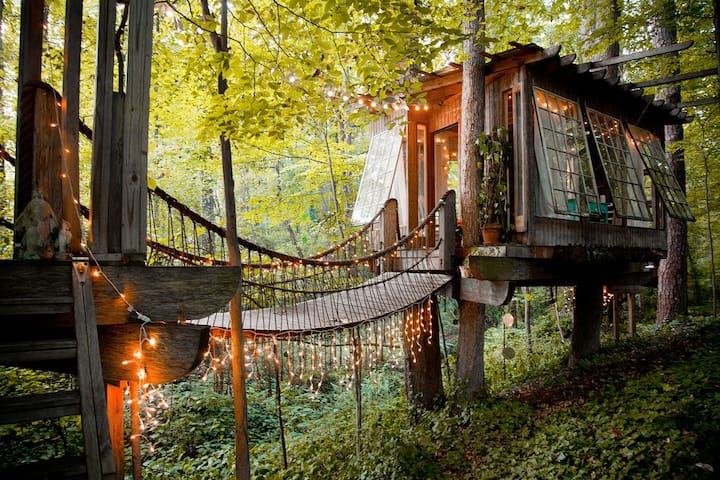People are favouring Airbnbs to traditional hotels as the unique home listings allow for a different stay each time one travels. Traditional hotel layouts are generally standardised - carpeted floors, brown curtains, white sheets, a desk for doing work, television and a sofa. The standard and minimal look of such traditional hotels differ greatly from our generally vibrant and cozy homes. When travelling, one would usually want to feel familiar in a foreign land. Airbnb homes entice users with their cozy environments, as if we are staying over at a friend's home.
People are also increasingly seeking to stay in Airbnb homes due to their totally different living environments - even beyond our wildest imaginations!
 |
| Ever wanted to live with sharks? |
 |
| Or in a castle? |
 |
| Perhaps in a treehouse? |
Having stayed in both a traditional hotel and an Airbnb listing in Hong Kong, I dare say that staying in the Airbnb has showed me the true side of Hong Kong. In traditional hotels, taxis are readily available right when we step out of the lobby - we are then directly chauffeured to our destination with little chance to explore the places in between. Compared to staying in an Airbnb, we walked about 10 minutes to the nearest MTR and travel another hour before reaching the same destination. This allowed us to soak in the local atmosphere more than when we take a cab. Taking public transport also gives us a peek into how locals commute throughout their daily lives, adding onto the authentic Hong Kong experience.
 |
| "Ding Ding" - a traditional Hong Kong tram |
Usually, rooms that are higher in demand tend to be those that have better facilities and services - air-conditioning in the house, bathtubs, dishwashers, dryers and heaters. These homes tend to consume higher amounts of energy. Thus, the energy usage may not be significantly less than compared to staying at a traditional hotel.
Thus, staying in an Airbnb doesnt automatically mean that we are being more environmentally friendly compared to staying in traditional hotel rooms - it is the overall amount of energy we consume, and how conscious we are when we use such energy.
References:


No comments:
Post a Comment